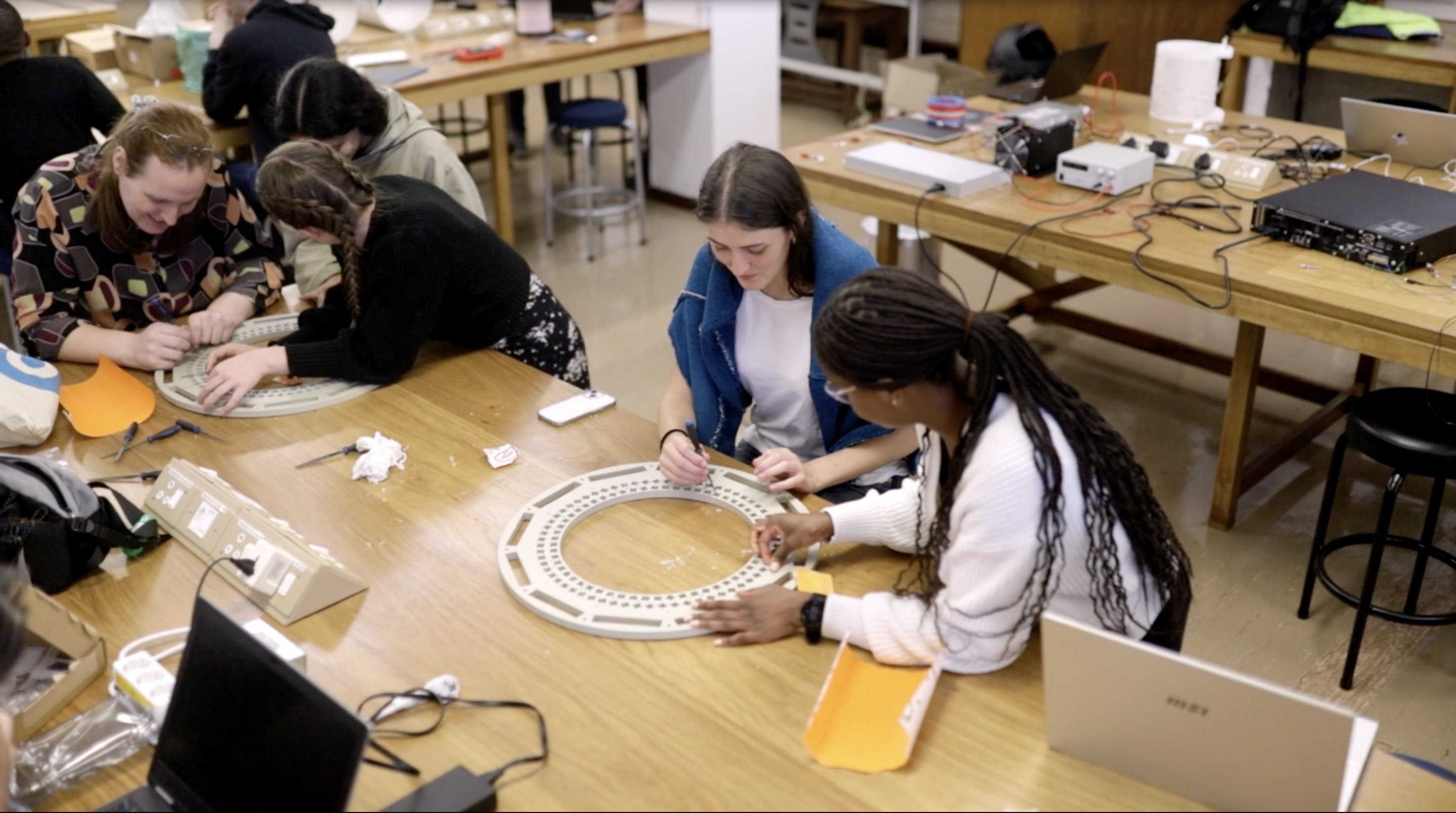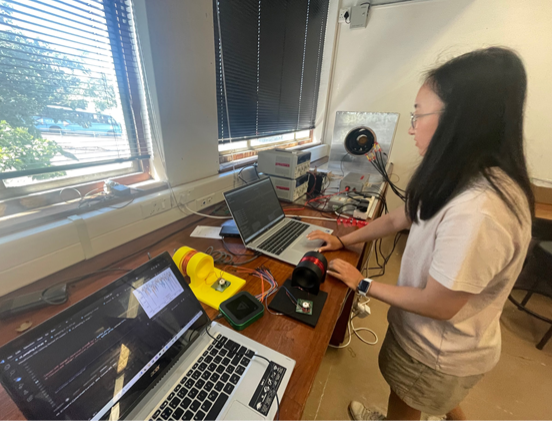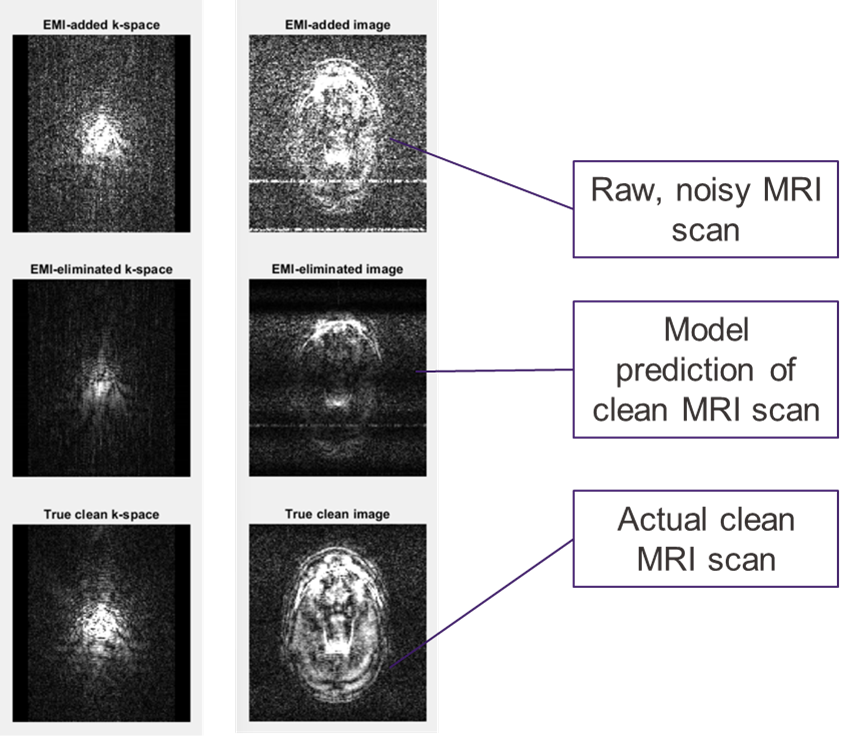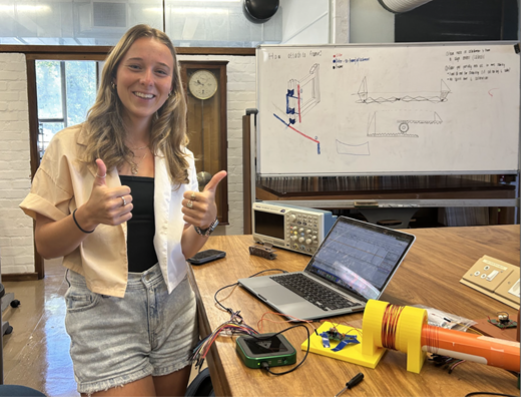Using Tongue Swabs to Diagnose Tuberculosis

A group supported by the Center for Innovation in Point-of-Care Technologies for HIV/AIDS and Emerging Infectious Diseases at Northwestern University (C-THAN) identified a need for improved imaging for diagnosis of tuberculosis meningitis (TBM) in children. The team built a point-of-care low-field magnetic resonance imaging (MRI) system for neuroradiological assessment of children presenting with suspected TBM.
TBM is a disease that is relatively uncommon in high-income countries. The Meningitis Research Foundation estimates that 70 percent of global cases occur in Southeast Asia and Africa.
Wider access to magnetic resonance neuroimaging enables earlier detection of TBM, potentially preventing catastrophic brain damage caused by disease progression, especially in children. Though this project is based in South Africa, the technology could be used in other countries, including the United States. 
Northwestern University biomedical engineering students build a low-field MRI machine in Cape Town, South Africa.
The Center for Innovation in Global Health Technologies (CIGHT), a center within the McCormick School of Engineering and the Feinberg School of Medicine's Robert J. Havey, MD Institute for Global Health, prioritizes multidimensional facets of global healthcare systems.
One of the project leaders is Matthew Glucksberg, PhD, co-director of CIGHT and professor of Biomedical Engineering. He has partnered with Ernesta Meintjes, PhD, MSc, from the University of Cape Town in South Africa, who has a long history with the development of MRI. Her research focuses on the application of how to develop motion-robust methods to acquire magnetic resonance images to study diseases and conditions particularly relevant to South Africa.
Other members of the research team are recent Department of Biomedical Engineering graduates of McCormick School of Engineering, Sean Luo (McCormick ’25), Oladapo Suleiman (McCormick ’25), Marilene van den Berg (McCormick ’25) and Isabel Zhang (McCormick ’25).
Sally McFall, PhD, co-director of CIGHT, frequently collaborates with Glucksberg.
“This project is a great example of how Professor Glucksberg links global health technology development projects funded by C-THAN with Northwestern University biomedical engineering student design projects, which benefits both the students and the investigators," McFall said.

Isabel Zhang (McCormick ‘25) works on the low-field MRI system.
When the images from the low-field device were noisy and needed to be cleaned up, Meintjes approached Glucksberg to enlist students from the biomedical engineering global health technology class to work on this project. Van den Berg and Zhang began work to provide an active noise cancellation solution for a low-field MRI system to improve signal quality and image resolution.

Implementation of data into direct signal prediction created a clearer image of a mango. Improved signal-to-noise ratio (SNR) supports successful model performance of the low-field MRI system.
The image quality improved, and with it, the results. The team implemented data to create clearer images – first using a mango as a test subject – to successfully refine their low-field MRI system, leading to an increase in TBM diagnosis capabilities.
 .
.
This project is funded by the Center for Innovation in Point-of-Care Technologies for HIV/AIDS and Emerging Infectious Diseases at Northwestern University (C-THAN), a center funded by the National Institute of Biomedical Imaging and Bioengineering (NIBIB) Point-of-Care Technologies Research Network (POCTRN), Fogarty International Center (FIC) and the National Institute of Health Office of AIDS Research.
Matthew Glucksberg, PhD, is a professor of Biomedical Engineering at Northwestern University and co-director of the Center for Innovation in Global Health Technologies at the Robert J. Havey, MD Institute for Global Health.
To learn more about the Center for Innovation in Global Health Technologies, visit their website.
For details on events, news and funding opportunities, sign up for the Havey Institute for Global Health newsletter.

